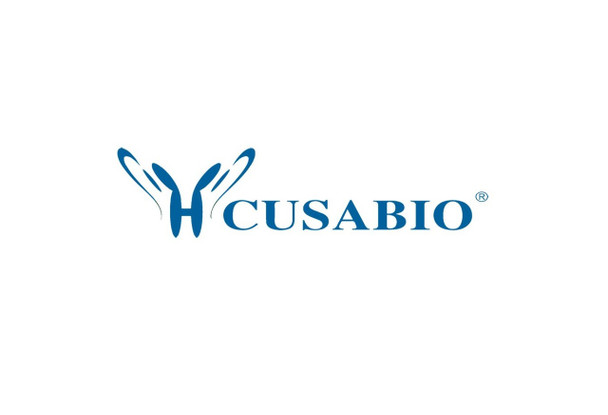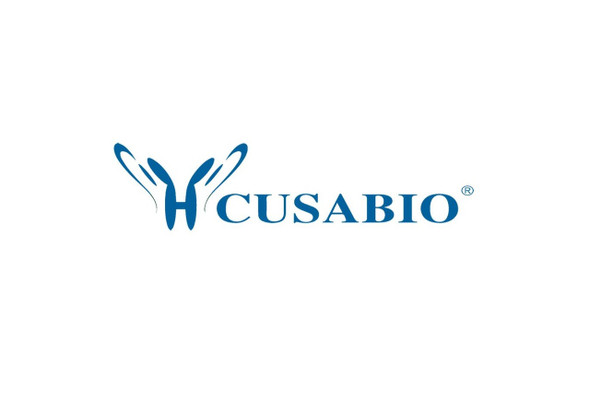Cusabio Human Recombinants
Recombinant Human L-xylulose reductase (DCXR) | CSB-EP772022HU
- SKU:
- CSB-EP772022HU
- Availability:
- 13 - 23 Working Days
Description
Recombinant Human L-xylulose reductase (DCXR) | CSB-EP772022HU | Cusabio
Alternative Name(s): Carbonyl reductase II Dicarbonyl/L-xylulose reductase Kidney dicarbonyl reductase
Gene Names: DCXR
Research Areas: Signal Transduction
Organism: Homo sapiens (Human)
AA Sequence: MELFLAGRRVLVTGAGKGIGRGTVQALHATGARVVAVSRTQADLDSLVRECPGIEPVCVDLGDWEATERALGSVGPVDLLVNNAAVALLQPFLEVTKEAFDRSFEVNLRAVIQVSQIVARGLIARGVPGAIVNVSSQCSQRAVTNHSVYCSTKGALDMLTKVMALELGPHKIRVNAVNPTVVMTSMGQATWSDPHKAKTMLNRIPLGKFAEVEHVVNAILFLLSDRSGMTTGSTLPVEGGFWAC
Source: E.coli
Tag Info: N-terminal GST-tagged
Expression Region: 1-244aa
Sequence Info: Full Length
MW: 52.9 kDa
Purity: Greater than 90% as determined by SDS-PAGE.
Relevance: Catalyzes the NADPH-dependent reduction of several pentoses, tetroses, trioses, alpha-dicarbonyl compounds and L-xylulose. Participates in the uronate cycle of glucose metabolism. May play a role in the water absorption and cellular osmoregulation in the proximal renal tubules by producing xylitol, an osmolyte, thereby preventing osmolytic stress from occurring in the renal tubules.
Reference: "P34H sperm protein is preferentially expressed by the human corpus epididymidis." Legare C., Gaudreault C., St Jacques S., Sullivan R. Endocrinology 140:3318-3327(1999)
Storage: The shelf life is related to many factors, storage state, buffer ingredients, storage temperature and the stability of the protein itself. Generally, the shelf life of liquid form is 6 months at -20?/-80?. The shelf life of lyophilized form is 12 months at -20?/-80?.
Notes: Repeated freezing and thawing is not recommended. Store working aliquots at 4? for up to one week.
Function: Catalyzes the NADPH-dependent reduction of several pentoses, tetroses, trioses, alpha-dicarbonyl compounds and L-xylulose. Participates in the uronate cycle of glucose metabolism. May play a role in the water absorption and cellular osmoregulation in the proximal renal tubules by producing xylitol, an osmolyte, thereby preventing osmolytic stress from occurring in the renal tubules.
Involvement in disease: Pentosuria (PNTSU)
Subcellular Location: Membrane, Peripheral membrane protein
Protein Families: Short-chain dehydrogenases/reductases (SDR) family
Tissue Specificity: Highly expressed in kidney, liver and epididymis. In the epididymis, it is mainly expressed in the proximal and distal sections of the corpus region. Weakly or not expressed in brain, lung, heart, spleen and testis.
Paythway:
Form: Liquid or Lyophilized powder
Buffer: If the delivery form is liquid, the default storage buffer is Tris/PBS-based buffer, 5%-50% glycerol. If the delivery form is lyophilized powder, the buffer before lyophilization is Tris/PBS-based buffer, 6% Trehalose, pH 8.0.
Reconstitution: We recommend that this vial be briefly centrifuged prior to opening to bring the contents to the bottom. Please reconstitute protein in deionized sterile water to a concentration of 0.1-1.0 mg/mL.We recommend to add 5-50% of glycerol (final concentration) and aliquot for long-term storage at -20?/-80?. Our default final concentration of glycerol is 50%. Customers could use it as reference.
Uniprot ID: Q7Z4W1
HGNC Database Link: HGNC
UniGene Database Link: UniGene
KEGG Database Link: KEGG
STRING Database Link: STRING
OMIM Database Link: OMIM









